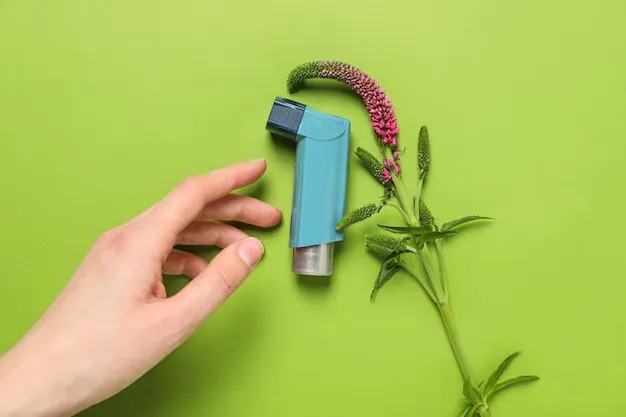pranaayurveda
25/03/2025

Asthma is a chronic respiratory condition that causes difficulty in breathing due to inflamed and narrowed airways. It is often triggered by allergens, pollution, cold weather, or stress, leading to symptoms like wheezing, coughing, and shortness of breath. While inhalers and medications provide temporary relief, Ayurveda offers a holistic approach by addressing the root cause and strengthening lung function naturally.
According to Ayurveda, asthma is primarily caused by an imbalance in the Vata and Kapha doshas. Excess Kapha leads to mucus buildup in the airways, while aggravated Vata causes breathlessness and wheezing. Poor digestion, toxin accumulation, and weak lung immunity can further trigger asthma attacks. Ayurveda classifies asthma as Tamaka Shwasa, a condition that worsens in cold and damp environments.
Certain Ayurvedic herbs are highly beneficial in managing asthma. Vasaka (Adhatoda Vasica) is a powerful herb known for its ability to clear respiratory congestion and improve airflow. Yashtimadhu (Licorice Root) acts as a natural bronchodilator, reducing inflammation and soothing the throat. Sitopaladi Churna, a traditional Ayurvedic formulation, helps dissolve mucus and supports easy breathing.
Ayurvedic therapies like Nasya (nasal oil application) and Dhoomapana (medicated herbal smoke therapy) can be helpful in clearing nasal congestion and strengthening the respiratory system. Drinking warm herbal teas made with tulsi, ginger, and black pepper can also provide relief from coughing and breathlessness.
A proper diet plays a key role in managing asthma. Ayurveda recommends consuming light, warm, and easily digestible foods to prevent mucus buildup. Including honey, turmeric, and garlic in daily meals helps reduce inflammation and strengthen lung function. Cold, fried, and dairy-heavy foods should be avoided as they increase Kapha and worsen asthma symptoms. Drinking warm water throughout the day helps keep the airways clear.
Breathing exercises like Pranayama (Nadi Shodhana and Bhramari) are highly beneficial in improving lung capacity and preventing asthma attacks. Practicing gentle yoga postures like Bhujangasana (Cobra Pose) and Dhanurasana (Bow Pose) helps expand the lungs and improve oxygen flow. Additionally, avoiding exposure to dust, smoke, and extreme weather conditions can help prevent flare-ups.
For chronic asthma, Panchakarma therapies like Vamana (therapeutic vomiting) and Basti (medicated enema) can help remove deep-seated toxins and restore dosha balance. Regular steam inhalation with eucalyptus oil can also provide long-term relief. These treatments should be done under the supervision of an experienced Ayurvedic practitioner.
Tags :
Authorized dealer of Kottakkal Arya Vaidyasala, offering the best authentic Ayurvedic treatments in Bangalore. Experience holistic healing with trusted expertise.
No. 240, Canara bank Colony Bus Stop, Nagarbhavi - Moodalapalya Main Road, Bangalore - 560072
Copyright © 2025 pranaayurveda.in

Prana Ayurveda
Typically replies within minutes
Welcome! Have questions about Ayurveda or our treatments? Feel free to ask us anytime!
WhatsApp Us
🟢 Online
WhatsApp us